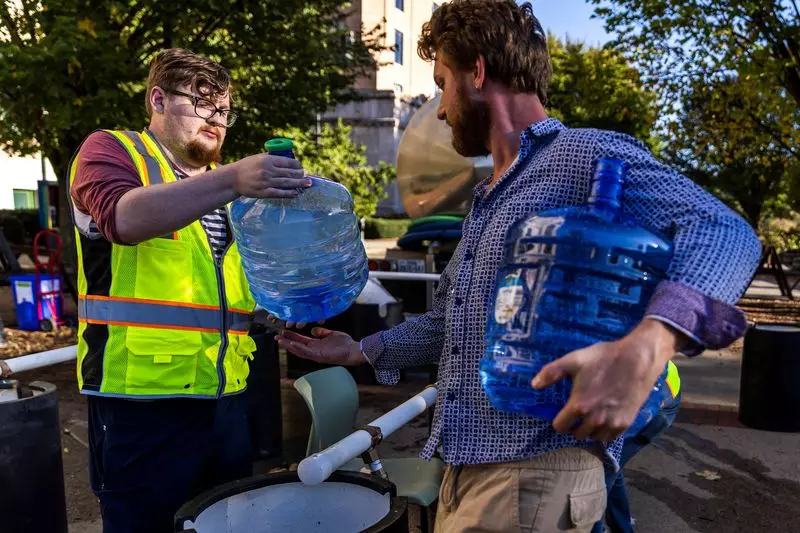Six days following Hurricane Helene’s devastating passage through the southeastern United States, tens of thousands of residents in North Carolina continue to face a dire situation: the severe disruption of their water supply. As the storm made landfall in Florida as a powerful Category 4 hurricane, it unleashed catastrophic flooding across the region, leading to an estimate of over 180 fatalities across multiple states. The repercussions for North Carolina are particularly alarming; significant infrastructural damage has left over one-fifth of the western population without access to potable water.
This water crisis has highlighted the delicate balance of services that many communities rely on. While urban areas typically depend on substantial water treatment facilities for their supply, rural and remote regions may rely on smaller, community-run systems or individual wells. The comprehensive disruption of such infrastructures raises urgent questions about preparedness and resilience in the face of climate-related events.
Asheville, a city that embodies artistic charm and a vibrant community spirit, finds itself grappling with the consequences of the storm. The local water system, which caters to over 150,000 residents, suffered extensive damage, as key treatment plants sustained impacts that hinder their operations. Residents have been warned that they may face weeks without running water and have been advised to boil any available water before consumption.
Individuals and families, such as David Shoham, a professor from East Tennessee State University, have been plunged into a daily struggle. Having previously filled his bathtub with water in anticipation of the storm, Shoham has depleted his reserves as he navigates the basic needs of daily life with no running water. The expression of helplessness resonates with many as they wait for authorities to restore services.
In the face of adversity, the local community has come together to provide assistance. Pack Square Park has been transformed into a bustling distribution center where volunteers diligently supply those affected with food and water. Many community members share their resources, offering up their kitchens to prepare warm, nourishing meals. Local restaurateur Jordan Lance, for example, has mobilized his team to churn out significant batches of food to support their neighbors through this challenging time.
This grassroots response accentuates the resilience of the human spirit when confronted with unforeseen crises. Yet, as locals face the daily realities of life without essential services, the emotional toll is evident. Families relying on community efforts to make it through each day are resilient, but the frustration and uncertainty loom large.
While the immediate response to the water crisis is underway, long-term recovery presents significant obstacles. Access roads to water treatment facilities were destroyed, delaying restoration efforts. The presence of local and federal agencies, including the National Guard and the U.S. Army Corps of Engineers, aims to expedite the repair of broken infrastructure. However, the road to recovery is expected to be lengthy, with predictions indicating that many may go weeks without reliable water supply.
Amidst the devastation, local businesses are similarly grappling with the repercussions of Helene’s fury. For establishments dependent on water for their operations, the loss of this essential resource could threaten their very survival. Harrison Fahrer, co-owner of a local brew house, articulates the dilemma: “Without water, we cannot brew. If we cannot brew, we cannot sustain our business.” The precarious position of such enterprises illustrates the broader economic fallout that often follows natural disasters.
In response to the unfolding crisis, political figures like President Joe Biden have taken notice and are acting accordingly, surveying the damage firsthand. The involvement of governmental support initiatives underscores the severity of the situation. For affected families, the hope is that governmental assistance will arrive in time to lessen the burdens brought about by the storm.
As the community strives to uphold its spirit amidst significant challenges, the resilience and compassion shown throughout this crisis may ultimately serve as a foundation for rebuilding not just the physical structures but the collective morale of the area. As residents band together, the emphasis remains on the necessity of robust infrastructure and a proactive approach toward disaster preparedness—a lesson hard-earned through the painful experiences of Hurricane Helene.
In sum, the ongoing water crisis in Asheville serves as a stark reminder of the vulnerabilities that communities face and the urgent need for comprehensive planning and resources to withstand nature’s relentless challenges.

